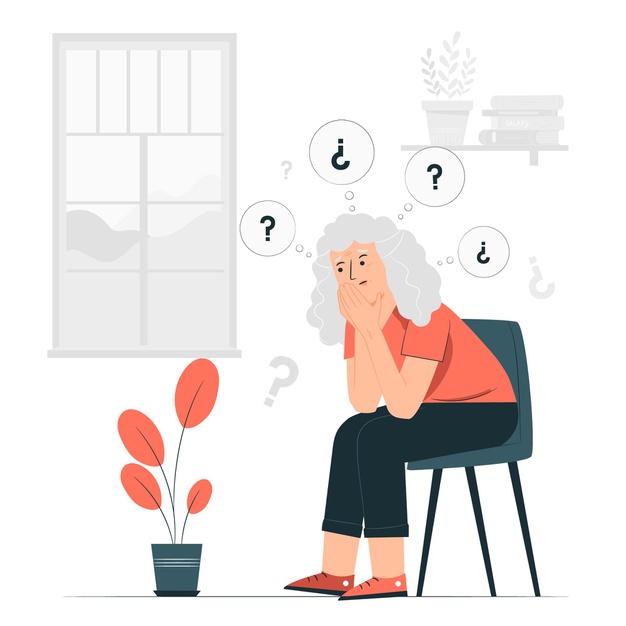A Quick Guide
Critical thinking is an essential skill that involves skepticism, exploring definitions and assumptions, examining evidence, considering alternative interpretations, avoiding oversimplification and overgeneralization. By practicing these strategies, you can enhance your ability to think critically in academic and daily life, enabling you to make informed judgments and discern truth from misinformation.
Introduction
Has your teacher ever asked you to think critically? And you just didn’t know what he/she expected or wanted from you by that? Rest assured, many new students in higher education programs face this situation. Throughout life, we aren’t taught the essential skill of critical thinking. Yet, one day we are suddenly expected to know it without any knowledge of the how or why of it.
In our previous article, we highlighted the why part i.e. why not knowing how to think critically can impair our everyday perception and decision-making. Here, our focus will be on how part i.e. how to think critically by utilizing a few key strategies. With practice, you can learn this skill set to assist you in your academic and daily life.
What is Critical Thinking?
First, let us describe what critical thinking is. It simply means not accepting things at face value. Rather, adopting a skeptical, curious and investigative mindset. In short, making an active effort to think and find the evidence before believing something is true.
How to think critically
According to expert psychologists Jeff Nevid and Spencer Rathus (2016), the following strategies can help one to think critically:
Maintain a healthy skepticism
This simply means to keep your mind open. You will be exposed to multiple people who will try to persuade you. Such as politicians, media advertisements, a businessman, textbooks, and even researchers. Look out for their biases and any major gains they can get from persuading you to do something. These can be in the form of money, fame, attention, a higher position, etc. In such cases, chances are that they will try to distort the information to make it attractive even if it’s not entirely true.
For example, A researcher persuades you that an expensive drug A is more effective than a cheaper drug B in treating a disease. After investigating, you find out that the researcher gets a handsome commission for every Drug A sold. Also, you find no evidence for drug B being any less effective. Thus, here your critical thinking can help you make the right judgment and decide which drug to buy.
Explore the subjective definition of a term
Every person has a different definition of a term when they use it. We usually assume it means the way we define it. Thus, to have clarity of the situation, find out the operational definition first. For example, Does diet coke actually mean it has zero sugar, or does it mean a slightly less percentage of sugar than a normal coke? Find out how the product developers define it before consuming multiple cans of it guilt-free.
Explore the underlying assumptions of a statement
Many statements have an underlying assumption. Uncover that to clearly understand a statement before accepting it as true. For example, some people use the term ‘feminine’ to describe a man and consider it an insult. Here, the underlying assumption is that since they consider ‘feminine’ an insult, they think women are inferior to men. So basically, they are insulting women by saying this.
Examine the evidence before drawing a conclusion
Anecdotes, ‘I know someone who’ stories, and ‘Research says.’ are often used as a marketing strategy to persuade people. Especially self-help books, psychics, and service sellers use these generously to convince others into buying their products or services. But have you ever asked, Which people are they talking about? Did all of them experience success or are failures not reported? Is there a possibility of faking the success? Is this backed by a scientific study? Who conducted the study? Where? Did they have any personal gain? Examine all of this before coming to a conclusion.
Consider alternative interpretations
Upon reading or hearing causal statements, consider alternative explanations. For example, ‘People with Gene XYZ, have Depression’. Ask yourself, ‘Apart from the gene XYZ, what else explains their depression?’ Poverty, non-availability of social support, a person’s temperament, stressful life events like the death of a parent, and distorted cognition are some other possibilities that have equal chances of being true.

Do not oversimplify
Many things do not have a simple yes, no answer. As multiple factors play a role. For example, the question ‘Will therapy cure a drug addict?’ does not have a simple yes or no answer. Instead, it depends on factors like the nature of the drug, the number of years of addiction, the person’s motivation, social support, etc. So, refrain from oversimplifying.
Do not overgeneralize
Remember that one thing does not apply to everyone. For example, you read research stating people gained weight during the lockdown. Ask yourself, Does this mean people all over the world gained weight? Or are the findings restricted to Italy where the study was conducted? Even there, was this finding limited to the study sample, or does it apply to all Italian people?
Think critically in daily life
Critical thinking in everyday situations will help you to decide which information is true. Also, it will enable you to screen out fake information and be more confident in your judgment as evidence will back it. Practice the above strategies in different aspects of your life to not only improve your thinking skills but also enjoy the benefits of doing so.
Watch: [5 tips to improve your critical thinking – Samantha Agoos]
Learn about Unveiling The Power Of The Conscious, Unconscious, & Subconscious Mind

In short, learning how to think critically can have a massive impact on our daily decision-making. Check out the following articles, linked with critical thinking:
Are Self-Help Books legit?: 10 things to look for finding the right book
Are you a victim of believing in Pseudoscience acting as Psychology?
How to differentiate Pseudoscience from Psychology: 15 ways.


